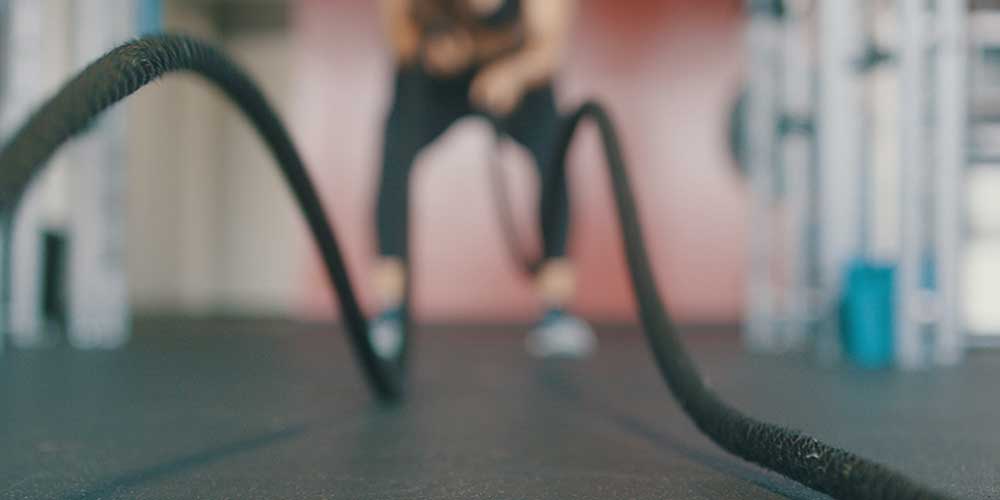Managing life as a corporate athlete
Managing energy, not time is the key
Here’s why taking a corporate athlete approach can make a marked difference for you. Jen is a talented executive in her late thirties whom we met on a UGM leadership program earlier this year. While she’s highly respected by her organisation, Jen doesn’t feel great. She’s exhausted most of the time, doesn’t eat or sleep well and her job seems to consume her life. She feels she has no time to engage with the people who’re actually important to her and, perhaps most significant of all, she has a permanent sense of dissatisfaction. There’s no doubt Jen is heading for an energy crisis!
Maybe you recognise yourself or someone you know in this description? How would you rate your energy management skills?
At the heart of Jen’s situation, is a single, simple fact: time is a finite resource that we can’t influence. But energy is another matter!
In this briefing, we sum up for you the exciting research being done in a number of centres around the world, revealing how we can manage our energy to help us perform at our best – in all areas of life.
Athletes vs. Executives!
Much of this research on high performance comes from a careful study of top athletes: how do they get themselves into that zone where they can excel, even under the extreme pressure of fierce competition?
But there’s a difference. The average professional athlete spends most of their time practising and only a small percentage of time actually competing. In contrast, the typical senior manager devotes almost no time at all to practising and getting fit, but they have to perform at their peak all day, every day – and keep this up for an entire career!
Oscillation – the first secret
Clearly, the corporate athlete must know how to perform and thrive over the long term. Research reveals several secrets that can have a positive impact.
First, there is the rhythmic movement between energy expenditure and energy renewal which has been termed oscillation. This is about alternating highly focused periods of work with short renewal breaks. It means taking a short ‘renewal break’ of even 5 minutes every couple of hours. You need to get up from your desk, move about, drink some water and eat a small nutritious snack, such as a piece of fruit. Even this very short time out has been shown to improve concentration and performance.
Oscillation over a week might involve exercise, hobbies, interests, and activities with family and friends. Over a year, it means taking those leave entitlements and getting right away – with no emails or phone calls!
Rituals (routine, repeated behaviours) help us to maximise the positive impact of even small renewal opportunities. For instance, have you ever had an evening at home where intrusive thoughts and worries about work ruined any chance of this being a genuine ‘time out’. An effective ‘transition ritual’ is a personal method that enables you to switch off – fast! For some people, it can be changing their clothes and leaving their work persona in the cupboard. Find rituals that work for you.
The performance pyramid – the second secret
Our energy comes from 4 main sources: the body, the emotions, the mind and our spirit or inner sense of purpose. We need to regularly review how we’re doing in each of these 4 areas, if we want to live rich, fulfilled and meaningful lives.
Our bodies
It will come as no surprise to learn that the foundation for an energetic life comes from good nutrition, enough sleep and the right mix of exercise for our age and physical state. If we live an unhealthy life and keep ourselves going with hits of sugar and caffeine, then we aren’t going to stay the distance. Something’s going to give in the end!
When was the last time you had a full medical check? Why not make that appointment with your GP now! While you’re there, ask your GP for some up-to-date advice about the best nutrition plan for your age and circumstances. The latest thinking suggests that, generally speaking, most of us need to pay more attention to nutrition than we typically do.
Our emotions
Do an ‘emotions audit’? Do you regularly feel frustration, irritation and dissatisfaction? Consciously relaxing, setting clear boundaries between work and personal life, and reconnecting with your family and friends are all great ways of giving you the emotional recovery you need. Daniel Gilbert, Harvard researcher on well-being, argues that, if he wanted to predict your happiness level, he wouldn’t want to know your gender, health, religion or income. He’d want to know about the strength and depth of your social network.
Our minds
For sustained high performance, we need to be able to focus, and think sharply and creatively. Learning mindfulness meditation is an age-old and proven way of quietening the mind and increasing clarity of thought. A number of teams are producing fascinating research on the impact on our brains of mindfulness meditation. One of these labs is run by Sara Lazar.
Our inner sense of purpose
This is about experiencing the energy that comes from tapping into our core values and sense of purpose. This sustains us in the face of life’s inevitable challenges and is a powerful source of motivation and determination.
Bringing it all together
When we live in ways aligned with our values and our strengths, feel connected to others, have focus and clarity, and enjoy the solid foundation of a healthy lifestyle – then we perform better and feel more fulfilled. We walk with a spring in our step!
PRACTICAL IDEAS TO APPLY IN YOUR BUSINESS
Do you want more energy?
- Body
- Try to get around 7 hours sleep a night
- Check your diet is nutritious and right for your personal circumstances
- Take a ‘renewal break’ every 2 hours
- Avoid being sedentary! Break up your busy day with exercise ‘snacks’!
- Emotions
- Make quality time for family and friends
- Express gratitude and appreciation
- Enjoy some pleasurable hobbies and interests each week
- Mind
- Take time out every few weeks to reflect and think creatively
- Learn how to meditate
- Values/Purpose
- Ask yourself what you stand for and what matters most to you
- Review the extent to which these values are reflected in what you do and how you spend your time
- Make sure your job uses what you do best and enjoy most



